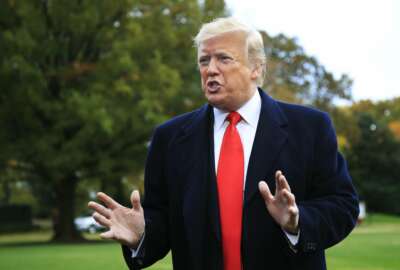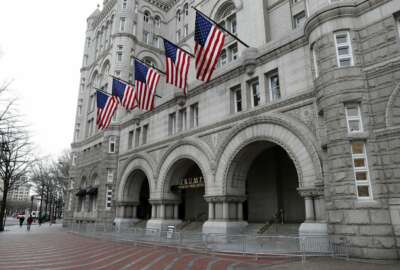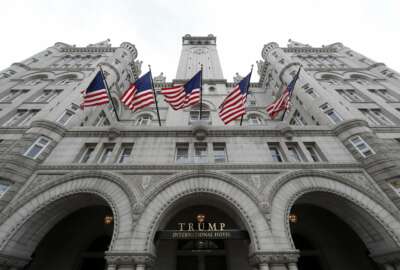
Judge denies Trump’s request to delay emoluments lawsuit
A lawsuit challenging whether President Donald Trump, under the Constitution, can benefit from foreign governments doing business with his Washington hotel can...
A lawsuit challenging whether President Donald Trump, under the Constitution, can benefit from foreign governments doing business with the Trump Hotel in Washington can go forward after a federal judge denied a Justice Department request to stay the lawsuit on Friday.
U.S. District Court Judge Peter Messitte, based in Maryland, challenged the Trump administration’s claim that there were “substantial grounds of disagreement” around the definition of emoluments in the Constitution.
The Constitution’s Emoluments Clause bans government officials from accepting gifts or payments from foreign or state governments without congressional approval.
“The President insists here, just as he did in his original brief, that his interpretation of what an ’emolument’ is … is one as to which substantial grounds of disagreement exist, presumably in the sense that fair minded jurists might reasonably reach contradictory conclusions,” Messitte wrote. “The Court finds this a dubious proposition.”
In July, the court denied the administration’s first request for a stay on the lawsuit.
The Associated Press reports the decision clears the way for the plaintiffs to seek financial records and other materials from the Trump Organization.
In May, a D.C. District Court judge ordered the General Services Administration to release documents pertaining to the Trump Hotel it originally withheld from a Freedom of Information Act request.
The General Services Administration’s Office of Inspector General announced in August 2017 that it would review the lease between the agency and the Trump organization.
The judge added that it remains unclear how Trump, named as the defendant in the case, arrived at his interpretation of what constitutes an emolument.
In the president’s Motion to Dismiss, he claims emoluments, as prohibited under the Constitution, would have to be “payments for his services as President.”
“In other words, over and above the salary he receives for his services as President, the federal government, and foreign and state governments would have to make specific payments to him (or possibly provide non-monetary benefits) for Presidential acts before they would be constitutionally impermissible,” Messitte wrote.
“By every reasonable metric, this appears to describe what is tantamount to a bride, so above all else the President’s definition of the term ’emolument’ is exceedingly strained,” the judge added.
Even if the Maryland District court were to accept Trump’s proposed definition of emoluments, Messitte said the plaintiffs — Maryland and the District of Columbia — would still have a plausible case.
“For instance, insofar as foreign governments have expressly stated in the media that they are patronizing the President’s hotel precisely because he is the President, and insofar as foreign governments such as Kuwait and Saudi Arabia have demonstrably done so, their payment could still constitute an ’emolument’ foursquare within the President’s definition of the word, especially if, what appears likely, the payments to his hotel are being made with an expectation of favorable treatment by the President in matters of foreign policy,” Messitte wrote.
The judge determined that “ultimate resolution of the case could be delayed significantly, perhaps for years” if the Trump administration continued requesting stays in the case.
“It is clear that the President, unhappy with the Court’s reasoning and conclusion, merely reargues that his interpretation of the Emoluments Clauses should apply instead of the one the Court gave … The Court sees no point in stating again why it concluded as it did to each of these issues,” Messitte wrote.
D.C. Attorney General Karl Racine, in a statement, called the judge’s decision “another major win” in the lawsuit.
“Our next step is to proceed with discovery. We will soon provide the court a new schedule to begin the process of getting information about how President Trump is profiting from the presidency,” Racine said.
Justice Department spokeswoman Kelly Laco, in a statement, said the agency “disagrees with and is disappointed by this ruling.”
“This case, which should have been dismissed, presents important questions that warrant immediate appellate review,” Laco said.
Copyright © 2025 Federal News Network. All rights reserved. This website is not intended for users located within the European Economic Area.
Jory Heckman is a reporter at Federal News Network covering U.S. Postal Service, IRS, big data and technology issues.
Follow @jheckmanWFED





